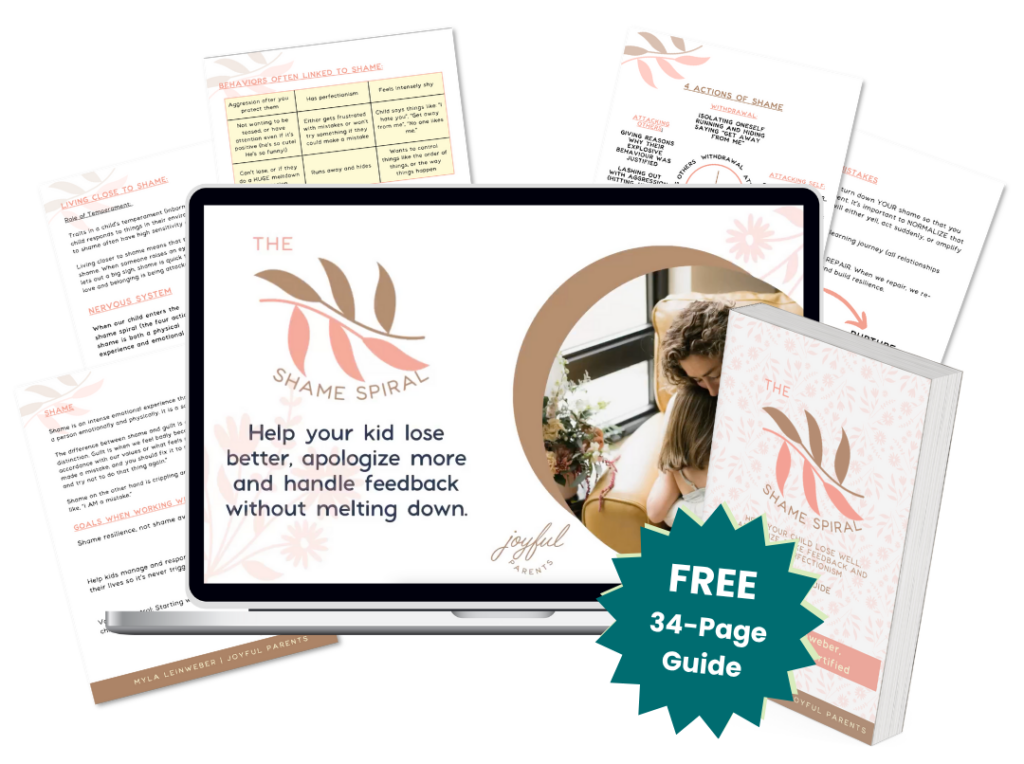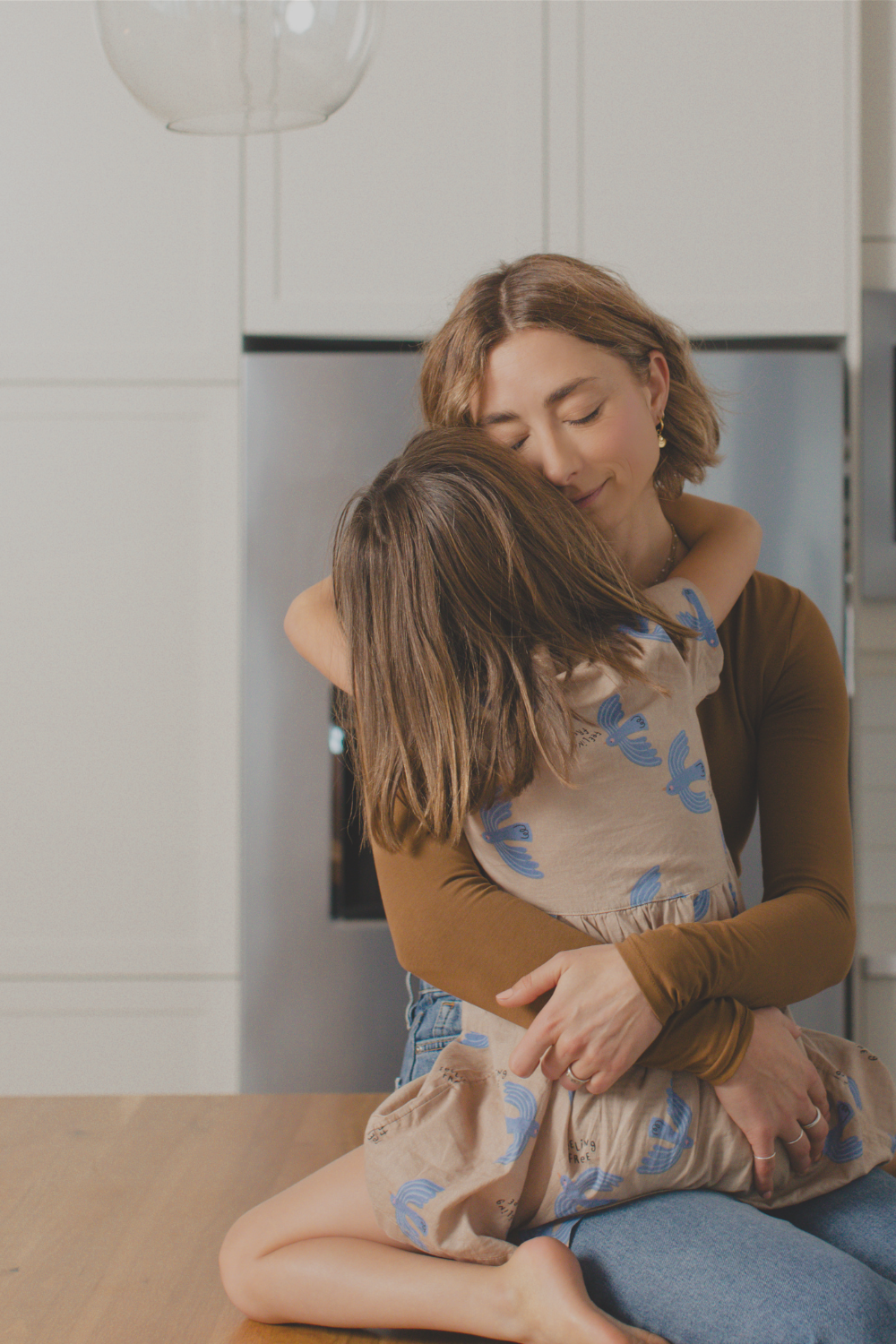If your child hides after making a mistake, says things like “I’m the worst,” or shuts down when corrected—they might be living close to shame. Here’s how to help them build resilience instead.
The Christmas ornament slipped from her fingers, even after being told 100 times “be so careful, grandma made that one!”
The dad couldn’t help it, he made ‘the noise’ the one that communicated “That is SO disappointing!” and there she went, circling down her shame spiral.
“I hate you! I hate you!”
It didn’t even make sense, but it’s how she she communicated “I know I’m not loved anymore, so look away so you don’t see me like this!”
The way her body collapsed and her words spilled out—it was like she had already decided she was unlovable.
If you’ve heard your child say things like “I hate you!” or “be quiet!” when you either try to correct them or even compliment them… this blog is for you.
What It Means to “Live Close to Shame”
Some kids make a mistake and move on.
Spicy kids? They make a mistake and crumble.
To “live close to shame” means your child’s nervous system is wired to interpret correction, failure, or imperfection as evidence that they are bad—not just that they did something wrong.
You might see:
- “I’m the worst!” or “No one loves me!”
- Hiding behind furniture or running away after a mistake
- Getting angry or defensive when corrected
- Freezing or going silent when asked to apologize
- Saying “I don’t care!” when they care very much
Why Reassurance Doesn’t Always Work
Your instinct might be to say:
- “That’s not true!”
- “You’re amazing!”
- “You know better than to hit!”
And while every POSK (parent of spicy kids) can relate to saying those words,
Why? Because when your child is deep in shame, they aren’t in a place to receive logic. They’re not questioning their worth—they’ve already decided.
Telling them “don’t say that” can make them feel even more wrong—now they feel bad about feeling bad.
What Actually Helps
Here’s how to support a child who’s stuck in the shame spiral:
Validate the emotion, not the belief
“That must feel so heavy to say.”
“You’re feeling something really big right now.”
Separate behavior from identity
“You made a mistake—and you’re still a good kid.”
“Messing up doesn’t change how much you’re loved.”
Support repair without pressure
Instead of demanding an apology, help them take a step toward reconnection:
“You’re the kind of person who makes things right, I love that about you.”
Use play and connection to turn down shame
Spicy kids don’t always need a deep talk—they need presence, lightness, and proof that they’re still safe.

Want to help your child build shame resilience?
The Shame Spiral Workshop was created for exactly this:
Inside, you’ll learn:
- How to recognize the hidden signs of shame before they explode
- What to say when your child says “I hate you!” or worse to hear “I hate myself.”
- How to repair with your child in a way that builds long-term resilience and connection
Because shame doesn’t have to define your child. And you don’t have to parent through it alone.
Shame Grows in Silence. But So Does Connection.
When your child spirals into “I’m bad,” it’s easy to feel helpless.
But your calm, nonjudgmental presence is the antidote. You don’t have to say the perfect thing. You just have to stay close.
You’re showing them that even when they mess up—even when they feel unlovable—they’re still worthy of connection.
And that lesson? That’s everything.
Related Posts
-

Why Does My Child Get Aggressive During Meltdowns?
Why does my child get aggressive during meltdowns? Learn what’s really happening in your sensitive child’s body and how to help.
-

Why Are My Child’s Meltdowns So Intense? Understanding Big Reactions
Your child’s meltdowns last 20+ minutes while others end in 5. It’s not your parenting; it’s their highly sensitive nervous system. Here’s what actually helps.